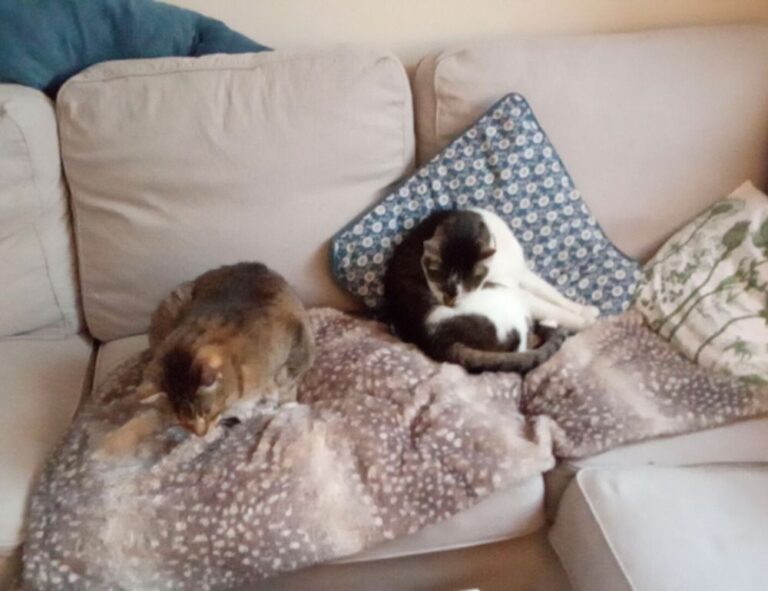Why Team Strategy Matters
Multiplayer games aren’t about being the flashiest or fastest on the field. At some point, your solo skill hits a wall—and that’s where team play takes over. You can only carry so much on swagger and quick reflexes. Past that, it’s about syncing up with your squad.
The teams that win consistently? They don’t just have aim or timing—they have rhythm. A good flank doesn’t happen in a vacuum. A coordinated rotation or shared cooldown combo beats any highlight reel play. It’s about everyone knowing their part and playing it well.
And here’s the kicker: fundamentals win. Watching corners, sticking to roles, keeping comms clear. It may not look flashy from the outside, but inside the match, that structure is what wrecks chaos. Time and again, strong basics outlast short bursts of brilliance.
Good teams make each other look better. Great teams win before the match even starts.
Core Principles of Team Coordination
Teamwork in multiplayer is less about flashy kills and more about flow. Communication is the difference between winning a fight and wiping. But it’s not about shouting everything—it’s about timing and relevance. Call out enemy positions, cooldowns, rotations, and resource status. Too much noise clogs the air. Too little? People die wondering why they didn’t know the flank was blown.
Every player needs a role, and they need to own it. Whether you’re the anchor, the scout, or the initiator, clarity cuts hesitation. Unclear roles lead to overcommitments or dead air when someone needs to step up. Define jobs before jumping into the match. Stick to them until the situation demands a switch.
Flashy plays might get clipped for social, but they don’t win most matches. Consistency does. A team that nails trades, rotates early, and executes simple combos every time will beat highlight-hunters nine times out of ten. Fundamentals scale—you don’t need fireworks to make an impact.
Lean into established team lingo. Keep phrases short and universal: “on me,” “rotate A,” “push two, hold one.” If your squad has its own shorthand, great—but everyone needs to understand it cold. Precision talk = faster moves = better outcomes.
Play as a unit, talk like a unit. That’s how teams win.
Building the Right Squad
A good team isn’t just a pile of high-rank players—it’s a mix of skill sets that actually click. You need your mechanics: players with sharp aim, tight timing, and reflexes that don’t flinch. But pure skill isn’t enough. Every strong squad also has a tactician—the one calling rotations, reading the map, setting tempo. And then there’s your think tank: the player who keeps the bigger picture in mind, tracks cooldowns, and helps the team adapt when the match shifts. If you’re missing one of these roles, expect cracks when things get tough.
Chemistry matters more than solo rank. Playing with teammates you trust—people who get your pace and communicate well—beats gambling on random all-stars with zero synergy. The vibe on mic, the tone of check-ins, and how your squad reacts under pressure speaks volumes. Wins come when people feel like they belong, not when they’re battling their own team between fights.
Toxic cycles—blame, sarcasm, apathy—kill coordination fast. Some teams spiral the second a match turns. The fix isn’t just muting the angry voice, it’s building a culture where feedback is clear, not cruel. Hold each other accountable and reset as quick as possible. Good comms plus respect builds resilience. That’s what it takes to grow as a unit, not just grind as a stack.
Game-Specific Strategy Tips
FPS/BR games Team firefights are won before the first shot is fired. Crossfire setups—where teammates cover overlapping angles—turn one peek into a death sentence. Pair that with smart flank timing and you don’t just clear rooms—you break squads. Revive etiquette counts too: don’t rush into open fire dragging your team’s only medic. Clear comms, cover angles, stabilize under pressure—treat recoveries like clockwork, not chaos. And don’t sleep on ping systems. Whether you’re hot-dropping or hunting late-game, smart pings (enemy spotted, need ammo, rotating here) are what make mute squads move like trained units.
MOBA/RPG co-ops Know your lane. Hold your lane. Win your lane. That’s the MOBA law. But it doesn’t stop there—map awareness is what separates carried players from true carries. Rotate at the right time, not just when you’re bored. Buff stacking and ally synergy? That’s the language of endgame dominance. If you don’t know when to pop support ults or chain crowd control, your win rate will cap out early. Build with the squad in mind, not just your personal power fantasy.
Sports/Fighting team games Passing isn’t just a mechanic—it’s a mindset. Push tempo or slow it down based on match flow, not ego. In fighting team formats, support defense is your backbone. Spot breaks, stuff rushes, keep pressure off your lead. Swapping out to reset momentum or protect a low-health character isn’t cowardly—it’s strategic. Great teams swing matches not because they outplay, but because they out-think.
Level up your game by mastering these small habits. Strategy starts with purpose, not ping.
Practice Smarter, Not Just Harder
You won’t get coordinated by grinding matches without purpose. Reviewing plays as a team—win or lose—is where the real growth kicks in. Record your games, grab a short segment, and ask one question: what broke down here? Not to point fingers, but to isolate habits and rethink decisions. Did someone overextend? Was the comm call too slow? Honest group review builds alignment fast.
Next comes drills. Just like sports teams run set plays, your squad needs reps. Create basic scenarios—2v2 splits, objective pushes, recovery from a wipe—and practice the comms around them. Speed of info flow matters. So does clarity. Trade out vague stuff like “they’re over there” with precise, practiced language. Use a shorthand your team gets in half a second.
Solo players aren’t off the hook, either. If you’re queuing without a squad, work on internalizing common team rhythms. Watch pro comms. Shadow how duos move. Even go non-verbal—use pings well, mirror your teammates, and learn to listen more than you talk. Team instinct isn’t magic—it’s trained, reviewed, and built one smart rep at a time.
Pro Tactics for Real Gains
Winning consistently in multiplayer takes more than fast aim or combo mastery—it demands a plan before the chaos hits. Pre-match planning isn’t about overthinking every move; it’s about having a shared baseline. Everyone should know the first 60 seconds: who’s taking point, what the fallback is if things go sideways, and how to call a reset. These aren’t full playbooks—they’re frameworks that keep the team from collapsing when plans A and B don’t work.
Mid-game spirals happen. What matters is catching them early. Don’t double down on bad plays or tilt into panic mode. Adapt calmly. Regroup, reassess roles on the fly, and reestablish basic comms. The strongest teams know when to hit pause, simplify, and reset before taking another swing.
Leading and following is a balancing act. One voice should cut through the noise when momentum breaks down, but not every moment needs a commander. Strong teams pass the torch fluidly—recognizing when it’s time to follow a sure plan versus when it’s time to offer one. Leadership is situational; reading the room is part of the game.
Finally, always build toward win conditions—don’t just farm kills or chase big plays. What secures the map objective? What breaks the enemy comp? What moment do you play for? Teams that track the real win conditions together close out more games. Raw skill might hold the line, but it’s coordinated intent that wins it.
Extra Resources That Actually Help
There’s no shortcut to synergy, but there are tools. Discord scrims and community-run practice lobbies are still the backbone for real improvement. They offer structured sparring with reliable teams—not just pub chaos. The key is consistency: weekly sessions, same squad, focused drills.
Then there’s gold in plain sight—pro stream breakdowns. Watch them not to copy, but to understand their flow. Note how they set up plays, rotate roles, or recover from bad rounds. The best teams don’t just react fast, they anticipate.
If your goal is long-term progress, performance tracking isn’t optional. Use analytics tools that show heatmaps, kill/death trends, comms precision. Not to inflate your ego—but to catch blind spots before they cost games.
Console player? You’re not left out. Streamlined tools and gameplay optimizations do exist. Start with this: Mastering Your Console – Essential Tips for Better Gameplay.
Wrap-Up: Win As a Unit
Beyond Reflexes: Why Strategy Sustains Success
Reflexes can carry a match, but strategic coordination keeps you on a winning streak. At higher levels of competitive play, mechanics alone won’t cut it. Teams that communicate and adapt together will consistently outplay faster, flashier opponents.
- Individual skill can make a moment; strategy wins the game
- Reflex gets you highlights, strategy gets you trophies
What Great Teams Actually Do
Winning teams aren’t built on raw talent alone—they evolve by learning from each match, adapting their roles, and supporting each other through setbacks.
- Study each game’s weak spots and work to fill them as a unit
- Adjust roles when needed based on real-time performance
- Encourage adaptability rather than rigid playstyles
Smart teams know the meta. Winning teams create their own rhythm within it.
Synergy Over Stats
Chasing leaderboards and scoreboards won’t keep your team improving if communication and trust are missing. Wins become sustainable when everyone is more focused on synergy than self-glory.
- Prioritize making better decisions together, not padding K/D ratios
- If one teammate is off—lift them up, don’t leave them behind
- Align personal goals with team objectives
Final Tip: Play Smart, Not Just Hard
To truly grow as a multiplayer team, treat good communication and consistent coordination as your core mechanics. Stats eventually fade—but team chemistry scales infinitely.
Stay clear, stay flexible, and play as one.












































































































































































































































































































































































































































































































































































































































































































































































































































































































































































































































































































































































































































































































































































































































































































































































































































































































































































































































































































































































































































































 Michael Sellersickson brought his expertise and dedication to the development of Console Power Up Daily, supporting the project’s growth from the ground up. His contributions in research, planning, and creative input strengthened the foundation of the platform, ensuring it delivers valuable insights to its audience. Michael’s hard work and commitment were instrumental in establishing a reliable and dynamic hub for gaming enthusiasts.
Michael Sellersickson brought his expertise and dedication to the development of Console Power Up Daily, supporting the project’s growth from the ground up. His contributions in research, planning, and creative input strengthened the foundation of the platform, ensuring it delivers valuable insights to its audience. Michael’s hard work and commitment were instrumental in establishing a reliable and dynamic hub for gaming enthusiasts.